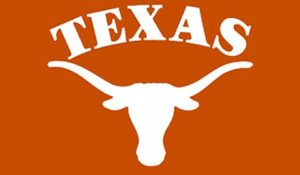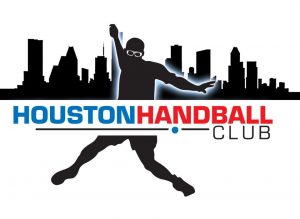Adam Bernhard Interview
Weekend at Bernie’s III
WPH Icebreaker Player Week
WPH Patreon Press
“Weekend at Bernie’s” is a Harvard educated attorney who brings his courtroom wits to the handball court, putting his opponents to the test on virtually every rally by keeping the ball out of their strike zones and forcing them to play long and analytical rallies. This Texas handball legend has amassed dozens of major titles in the Lone Star State and has proven that he can compete against the best in the world on the R48.
Adam Bernhard WPH Rapid Fire Challenge HERE
“Bernie” calls his hometown Texas, referring to the Lone Star State as a “state of mind.” Bernie still lives, works, and trains in Texas, while he continues to hone his handball skills for the game’s biggest stages.
What sports did you play most seriously growing up?
I was lucky enough to play almost every sport. The most serious sport for me was the one (or two) that was in season at the moment-but I never picked just one.
What brought you back to handball after taking time away for law school?
Law school was just a timeout from the game. I never lost the desire to play but decided to fully immerse myself in that environment for a few years. My schedule was so full, there wasn’t time for traveling to tournaments. I did eventually find a long forgotten court on campus and would occasionally practice by myself.
When and why did handball become your sports focus?
For me it was near the middle of high school when I suddenly became curious about playing the game my dad had always played. My dad was accommodating without being pushy, and I fell very naturally into playing and practicing—quickly enjoying it as much as any sport I had played before. Some sports have a lot of strategy, or ball-striking, or movement, but handball has them all.
Who inspired you to become a handballer?
Consciously, at least, there was not any external motivation. It was almost like one day I discovered handball and as soon as that happened the sport was the inspiration. In reality though, my dad has always played and even though I did not play growing up, I was exposed to the game. We went to tournaments as a family once or twice a year and I can still remember sitting in the back of the courts as my dad practiced, watching and listening to the rhythm of the ball bouncing over and over and over.
What was the best advice you ever received in your handball career?
The best advice I ever received was to never give away your secrets! The other best advice I got was, in moments of stress, just play the ball. Forget the rest of it.
Who were your favorite pros to watch as a junior?
Without question David Chapman. From an entertainment aspect it is not even close for me. His variety of shots and creativity provided spectators the opportunity to witness something they would not have been able to imagine on their own. My other favorite to watch was Paul Brady. The tidiness of his game, determination, and crispness of shots and movement were, and are, beautiful to watch. About two weeks before the famous “Ultimate Handball Showdown,” where Brady beat Chapman for the first time, I had the privilege of watching them play a pro stop final (in Texas). The match went to a very close nail-biting tiebreaker – a handball fan could not ask for more.
What do you consider to be your breakthrough moment in handball?
Like many people it has been a series of wins. Some at small local tournaments when I beat someone I had been trying to beat, and others at state or national events where I surprised myself by beating accomplished players. Anyone that plays handball and tries to the best of their abilities belongs, and anyone that does that for any length of time will keep moving their target higher and higher.
You are one of the most prolific winners in the history of Texas. What does it mean to you to sit alongside some of the all-time great players from Texas?
That is a generous question, given how great some of our players of yester-year were, but to the extent I have accomplished things in Texas I am proud of having consistently shown up and competed at our tournaments. When more people attend tournaments it is better for everyone. There are many players that could play more tournaments than they do. I am proud that I show up and compete. I have lost more Texas tournaments than I have won, but I enjoy all of them.
Who is your toughest opponent to play on the tour and why?
That’s an easy question– whoever I play in the first round after playing two qualifier matches earlier in the day. I like the WPH format, but it is definitely tough to win that first round after qualifying.
Who is your handball hero?
I have never idolized a particular player—although I have tried to emulate plenty of different people’s shots. The true handball heroes, to me, are the people who have contributed to handball so much that it has benefited the whole community. There are many around the country I have never met, or have met and did not realize all they do, but a few that come to mind for me are Dave Vincent, Dave Fink, Freddy Banfield, Wayne Lee, and Mike Driscoll.
Your game is a throwback to the Paul Haber and Jimmy Jacobs era. Players on tour call it “Bernie Ball.” Most players hit the ceiling five times in a match, you might hit the ceiling 10 times in one rally. Combining your defense with offense makes you a very difficult opponent to play. Are you conscious of changing the speed of the game against today’s offensive-minded pros?
Yes I was taught early on that against someone who wants to pound the ball it might be a good idea to slow things down and make them hit a different shot. In general, I think that is correct—although implementing it can prove difficult. Another reason I play that way is that I enjoy it. It is more fun to hit a variety of shots, have longer rallies, and maybe even frustrate my opponent. I suppose if I could hit the ball like Sean Lenning that would be fun too.
Speaking of speed of the game, you play deliberately, taking your 10 seconds and not allowing pros accustomed to playing quickly to play at their pace. Is this part of the “Bernie Ball” playbook?
It is not an official Bernie Ball rule, but it is something I do often. It can help mentally to take your time between points. For some reason a lot of players seem to dislike it, although that is not the reason I do it. Incredibly, since it is a clear rule, I have had multiple referees refuse to allow the 10 seconds between rallies. It always gets resolved but only after significant disruption for everyone.
What has been your greatest moment on the handball court?
I can’t pick one but generally my best moments are the wins that I have worked for the hardest. After losing to someone it is a sweet feeling to train extra hard, get the chance to play again, and then come out with a victory. It is working for something that makes it sweet.
What has been your biggest disappointment on the handball court?
There are too many disappointments to mention so I’ll just pick a recent one with a happy ending. Last year’s Texas State tournament was also a WPH pre-qualifier so there was a lot on the line. I had a brutal draw for our state tournament and after overcoming former champ Memo Palleres in the quarter-finals, and then pro Max Langmack in the semifinals, I did not have enough left and came up short against Sam Esser in the finals (he played great). However, that loss inspired me to enter the next WPH pre-qualifier. That tournament was at the L.A. Athletic Club and I had a wonderful tournament and weekend—eventually winning the pre-qualifier against some very tough competition.
You had a chance to spar with Martin Mulkerrins while Martin was living in Texas. How did those matches help your game? What impressed you most about Martin?
First and foremost I was impressed with Martin as a person. It was a treat having him here and we played a decent amount. The biggest lesson for me was the value of placement. Martin could already hit the ball a ton but if I could keep the ball out of his strike zone things were pretty close. Since then he has gotten even better and increased his strike zone.
How do you prepare for handball tournaments?
I like to play tough practice matches to prepare for tournaments. Tough matches give you conditioning, timing, and whip your strategic brain into shape.
Your schedule does not allow you to play as many Race events as you would probably like. How different is playing a Race event to a strong weekend tournament in Texas?
The strongest Texas tournaments are similar to the WPH qualifier portion of a pro-stop as we usually have multiple folks who have qualified before. But the main draw at a WPH event is a whole different level. It requires way more stamina and consistency.
What do you enjoy most about playing handball and playing the tour?
The challenge. Competing. Traveling.
If you could play any better in any era, who would you most like to play and why?
If I could play any player from any era it would probably be my dad when he was my age. It would be a good challenge and also a lot of fun.
What advice do you have for aspiring Race 4 Eight players?
Set incredibly high standards for the quality of your shots and decision-making. It seems the truly great players are not satisfied with really good. They are aiming for perfect. Their failure to be perfect is better than other people’s achieving really good. Also: have fun, it would be a waste not to.
Word Association
Texas handball: Gregory Gym
Killian Carroll: Determination
John Bike: Big grin
Paul Brady: Champion
Martin Mulkerrins: Gentleman
Race 4 Eight tour: saving grace of handball
David Fink
WPH Senior Writer











